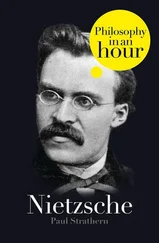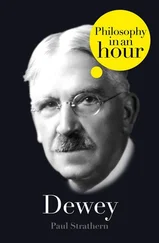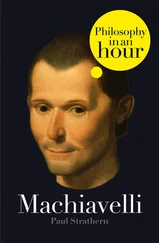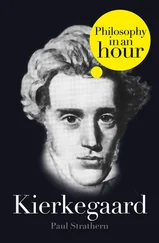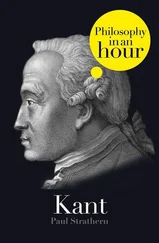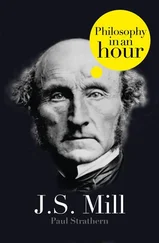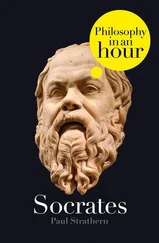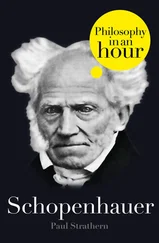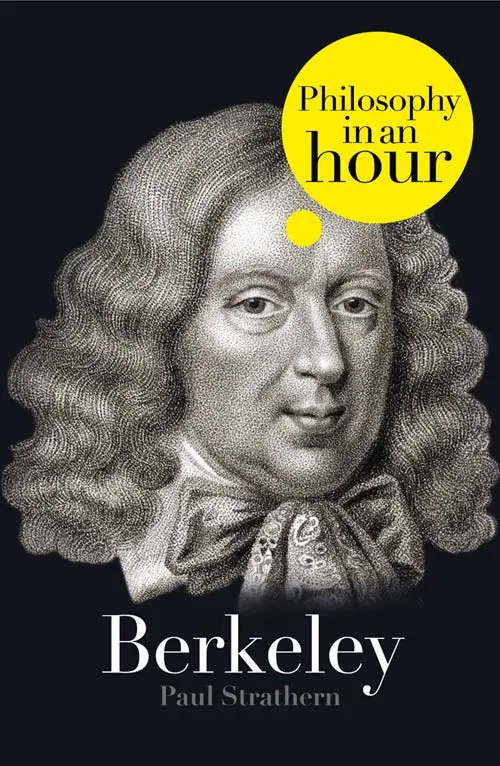
Berkeley
PHILOSOPHY IN AN HOUR
Paul Strathern

Cover
Title Page Berkeley PHILOSOPHY IN AN HOUR Paul Strathern
Introduction
Berkeley’s Life and Works
Further Information
From Berkeley’s Writings
Chronology of Significant Philosophical Dates
Chronology of Berkeley’s Life
Chronology of Berkeley’s Era
Recommended Reading
About the Author
Copyright
About the Publisher
Introduction Contents Cover Title Page Berkeley PHILOSOPHY IN AN HOUR Paul Strathern Introduction Berkeley’s Life and Works Further Information From Berkeley’s Writings Chronology of Significant Philosophical Dates Chronology of Berkeley’s Life Chronology of Berkeley’s Era Recommended Reading About the Author Copyright About the Publisher
Berkeley is the sort of philosopher who gives philosophy a bad name. When you first read his work you think it’s ludicrous. And you’re right, it is. Berkeley’s philosophy denies the existence of matter. According to him, there is no material world.
Modern philosophy had been started in the seventeenth century by the French philosopher René Descartes, who maintained that our only true knowledge of the world is based upon reason. Less than half a century later this Cartesianism, as it was called, was opposed by the English philosopher John Locke, who founded empiricism. Locke took a more common sense view, claiming that our only true knowledge of the world must be based upon experience.
It was perhaps inevitable that philosophy wouldn’t remain constricted within the straight-jacket of common sense for long. Just twenty years after Locke’s Essay on Human Understanding came Berkeley’s Essay Towards a New Theory of Vision , which set philosophy free from what most of us regard as reality. This carried Locke’s empirical thought through to some very noncommonsensical conclusions. According to Berkeley, if our knowledge is based entirely upon experience, we can only know our own experience. We don’t in fact know the world, just our particular perceptions of it. So what happens to the world when we are not experiencing it? As far as we are concerned, it simply ceases to exist.
So according to Berkeley, when you don’t see something it isn’t there. This position is adopted by infants who screw their eyes closed when they wish to avoid eating any more spinach and prune puree. Yet by the time we have achieved the exalted status when we eat our spinach and prunes separately (or not at all), we have usually grown out of this attitude. But not Berkeley. According to him, a tree isn’t there if we don’t see it or perceive it in any other way, such as touch or smell. So what happens to the tree? Berkeley was a God-fearing man, who eventually became a bishop. This led him to an ingenious explanation as to how the world persists when we don’t experience it. His position is simply explained in the following two limericks:
There was a young man who said, ‘God
Must think it exceedingly odd
If he finds that this tree
Continues to be
When there’s no one about in the Quad’.
And the reply:
Dear Sir:
Your astonishment’s odd:
I am always about in the Quad.
And that’s why this tree
Will continue to be
Since observed by
Yours faithfully,
GOD.
In other words: we can know that the world exists only when we are perceiving it. Yet even when we are not directly perceiving the world, it is nonetheless supported by the continuous perception of an all-seeing God.
Berkeley’s empirical conclusion (no permanent reality) and his miraculous solution (an ever-present God) sounds like so much sophistry. Today’s sensibilities for the most part have little time for such apparent intellectual trickery – which seems to belong more to the Middle Ages than to our age of science. So it comes as some surprise when we find that subatomic physics has been forced to a surprisingly similar conclusion to Berkeley’s. According to Heisenberg’s uncertainty principle, we cannot simultaneously measure both the momentum and position of a subatomic particle. If one of these elements is measured (i.e., perceived), the other remains indeterminate. Thus, in a very real sense, only the quality which is being perceived (the measured position, say) is real, and the other quality (its momentum: mass and velocity) does not exist in any determinable form. We can only ‘know’ the one we are perceiving. The other element is in a sense ‘there’ (as if perceived by an all-seeing God), but it cannot come into any determinate existence until we perceive it.
Berkeley’s philosophy appeared to take empiricism to a ludicrous extreme. But when we follow through the implications of our common sense assumptions to their logical conclusions, the result often has little to do with the ‘obvious’ common sense assumptions from which we started. Common sense is how we attempt to run our everyday lives. But if we wish to progress beyond the imprecision and muddle of everyday existence to some more certain truth, we frequently have to abandon the obvious. As Einstein remarked: ‘Common sense is the collection of prejudices acquired by age eighteen.’
Конец ознакомительного фрагмента.
Текст предоставлен ООО «ЛитРес».
Прочитайте эту книгу целиком, купив полную легальную версию на ЛитРес.
Безопасно оплатить книгу можно банковской картой Visa, MasterCard, Maestro, со счета мобильного телефона, с платежного терминала, в салоне МТС или Связной, через PayPal, WebMoney, Яндекс.Деньги, QIWI Кошелек, бонусными картами или другим удобным Вам способом.



